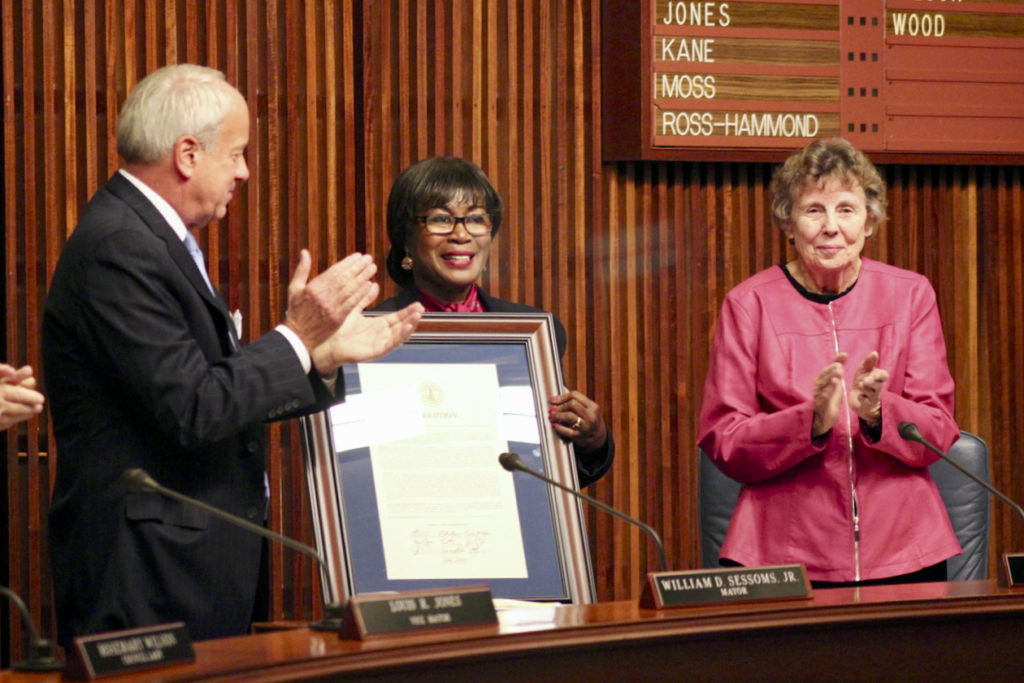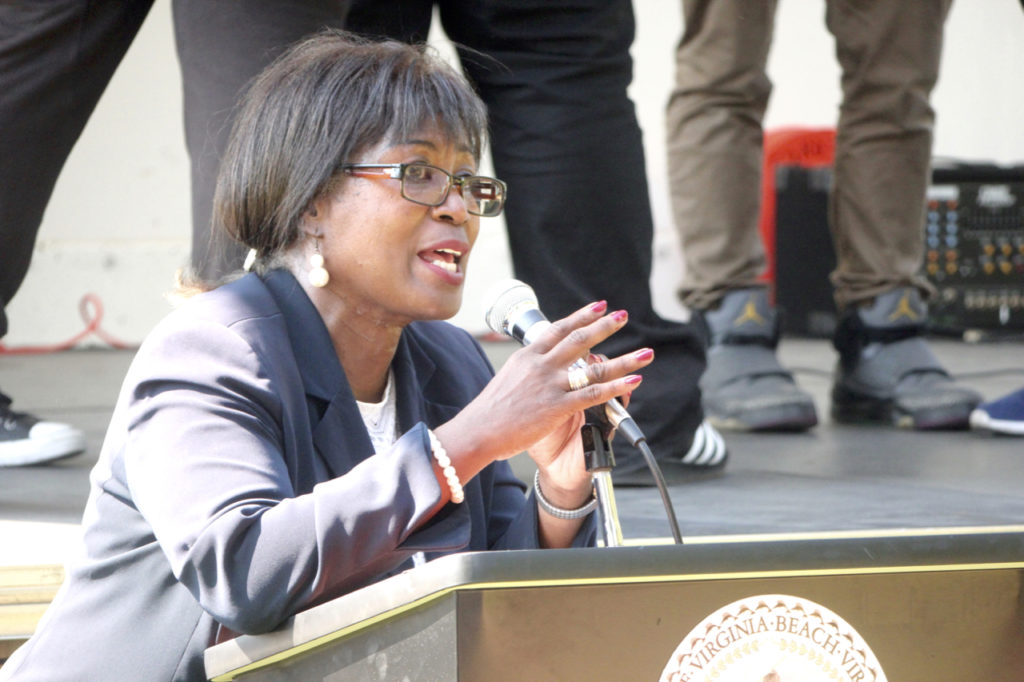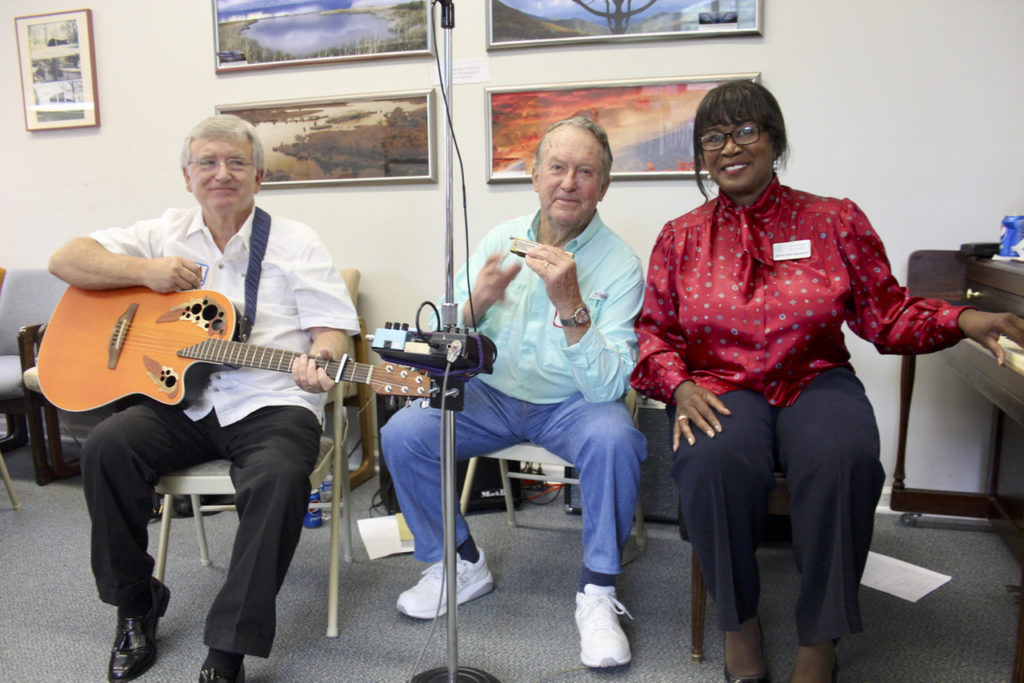
KEMPSVILLE — Dr. Amelia Ross-Hammond’s phone started ringing early on Wednesday, Nov. 9, a day after newcomer Jessica Abbott was voted into the Kempsville District city council seat Ross-Hammond had occupied for the last four years.
“People wanted to know if I’d still be working on things I’d been involved with,” Ross-Hammond said later. “I told them of course I would.”
During an interview on a rare “day off” before the holidays – she only had three meetings scheduled – she wanted to look forward, not back.
“I’m still appointed by the governor on the Hampton Roads Transportation District Commission until 2020,” Ross-Hammond said. “I’m on the budgeting committee. I’m still on the community services board. I still serve as president of the Young Audiences of Virginia Arts for Learning. I’m on the board for the Elizabeth River Project. …”
The list is long, including Ross-Hammond’s work overseeing the Virginia Beach African American Cultural Center, for which property has been secured at a park between Newtown Road and Hampshire Place. The project is now in the feasibility study stage.
A day before she discussed these plans, Ross-Hammond had been honored at a city council meeting for her service to her district and the city. It was a little difficult, a little sad to say goodbye, also a little surprising.
“I guess sometimes you don’t realize what you’ve done until it’s presented to you like that,” she said. “You don’t really notice it as you’re doing it. You see it when you look back.”
What Ross-Hammond sees now are threads that have always been a part of her life story, the things that connect the elements she holds most dear – civic engagement and service, history, culture, and the arts. That she would eventually hold public office seemed a stretch in some ways because of that. It also seemed inevitable.
Early influences began as a native of Liberia, West Africa.
“My father was the first mayor of Monrovia,” she said. “My parents built the first city hall,” seeing the need for a permanent structure as opposed to having a rented building. Her role as a youngster was presenting flowers on behalf of the city to many foreign dignitaries, from Queen Elizabeth to Richard Nixon.
“From the time I was little, I was cultivated in political aspects,” Ross-Hammond said. “People who know me say it’s interesting that you have four brothers, and you were the one to follow in your father’s footsteps into politics.”
Ross-Hammond’s father, Nathan C. Ross, who died at 87 in 2003, was an attorney, and later served in the Liberia House of Representatives. He began his political career in 1956, serving as mayor until 1969. It was after a violent political coup in 1980 that the Ross family permanently settled in the U.S.

“I loved music from when I was small,” she said. “I wanted to learn as many instruments as I could then, but I wanted to learn more.”
Her parents, who strongly believed in education, sent her to a girls’ boarding school in England. Ross-Hammond became accomplished on the violin, accordion and guitar, among other instruments. She played second chair in the area orchestra and planned to attend the Royal Academy in London.
“But my parents wanted me to see what was going on in the west, in America.”
Ross-Hammond was accepted at both the Julliard School and Ithaca College. When her parents compared the city setting of Julliard to the more rural Ithaca school with dorms their only daughter could live in, her college choice was made.
Over the next 20 years, as she continued her education, Ross-Hammond participated in teaching exchanges between Liberia and the US, often involving projects that brought her into contact with political figures.
An important one took place early on.
“I remember how neat it was to get a telegram from [Henry] Kissinger” praising her accomplishments, she said. “I didn’t know much about him at the time, but of course I later realized he was the secretary of state.”
For her participation in a UNICEF program while teaching in Colorado, she received an award from the governor of that state.
As the director of the Service Learning and Civic Engagement program while teaching at NSU, she found herself being honored along with other directors at the White House.
“It’s when I look back, I see how things led back to meeting certain people and having political aspects,” Ross-Hammond said.
Those aspects combined with her passion for history and its importance manifested locally in the district she represented.
One of her projects on city council was bringing attention to Kempsville as a historic landmark for a Revolutionary War skirmish, the Battle of Kemps Landing. Streetlights and signage are a part of planned changes, some of which have already been implemented.
Her home town was named for the fifth U.S. President, James Monroe, who was prominent in funding the American Colonization Society, which paid for freed slaves to return to Africa. A development near Norfolk State, Robertsville, was named for a Norfolk-born black citizen, Joseph Jenkins Roberts, who would become the first Liberian president, and helped fund education for those who moved back to Africa.
“The past really does connect to the present and the future,” she said. “I think it’s important for people to understand that.”
To that end, her vision for the African American Heritage Center includes local and African historical and cultural exhibits, and she foresees interactive opportunities for people to learn about African cooking, music, dance, art, and culture.
Even the design for the building is based on the African tradition of celebrating and meeting in a circle.
“It makes everyone equal.”
As plans for the center develop, Ross-Hammond will continue her work with current projects and committees, fueled by the appreciation and recognition she has received for her time on city council.
“Most times, people are recognized and people share those things at memorials,” she said. “I’m blessed. I got to receive my flowers now.”

© 2017 Pungo Publishing Co., LLC

